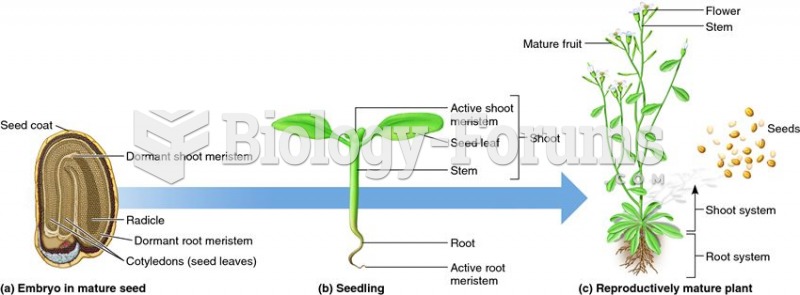Answer to Question 1
Correct Answer: 2
Rationale 1: The pharmacologically active chemicals in an herbal product are not necessarily produced only in the roots.
Rationale 2: The pharmacologically active chemicals in an herbal product could be produced in only one specific part of the plant or in all of its parts.
Rationale 3: Herbs may contain dozens of active chemicals, many of which have not yet been isolated or identified.
Rationale 4: The active chemicals in an herb can vary from batch to batch, depending on how the herb is collected, stored, and preserved.
Global Rationale: The pharmacologically active chemicals in an herbal product could be produced in only one specific part of the plant or in all of its parts. The pharmacologically active chemicals in an herbal product are not necessarily produced only in the roots. Herbs may contain dozens of active chemicals, many of which have not yet been isolated or identified. The active chemicals in an herb can vary from batch to batch, depending on how the herb is collected, stored, and preserved.
Answer to Question 2
Correct Answer: 2
Rationale 1: The manufacturer is not required to prove the safety of the product.
Rationale 2: The DSHEA gives the FDA the authority to remove any product from the market that poses a significant or unreasonable risk to the public.
Rationale 3: Dietary supplements do not have to be tested prior to marketing.
Rationale 4: The manufacturer does not have to prove the efficacy of the product.
Global Rationale: The DSHEA gives the FDA the authority to remove any product from the market that poses a significant or unreasonable risk to the public. The manufacturer is not required to prove the safety of the product. Dietary supplements do not have to be tested prior to marketing. The manufacturer does not have to prove the efficacy of the product.







